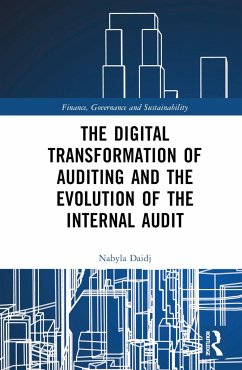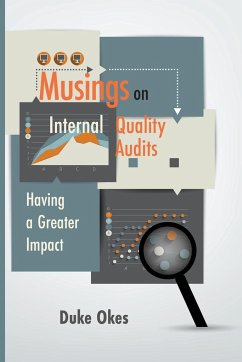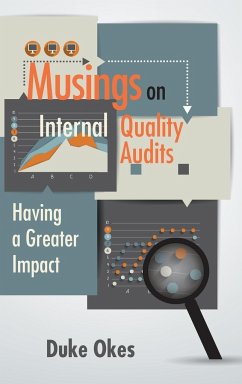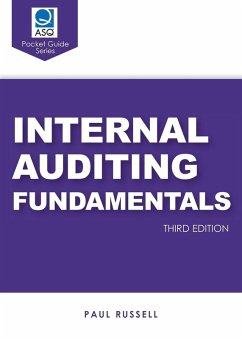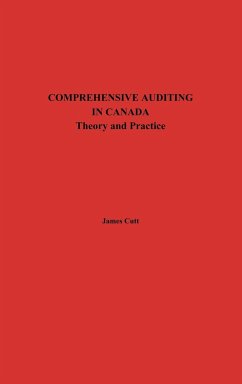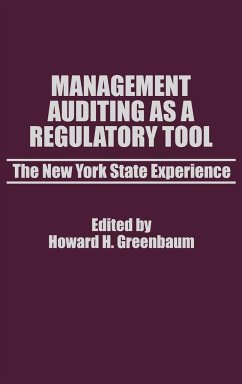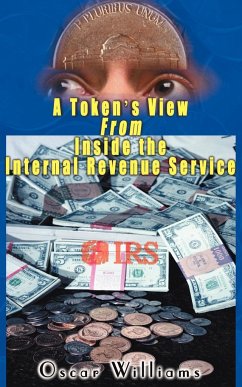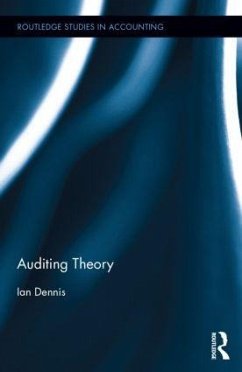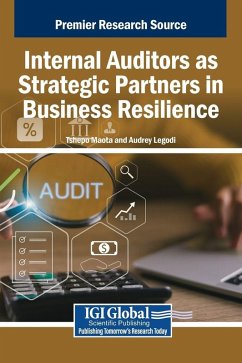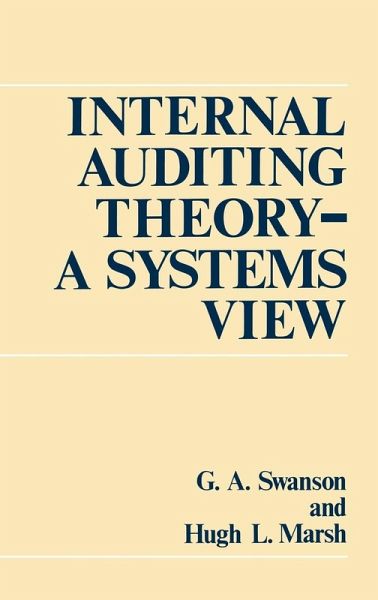
Internal Auditing Theory--A Systems View
Versandkostenfrei!
Versandfertig in 1-2 Wochen
87,99 €
inkl. MwSt.

PAYBACK Punkte
44 °P sammeln!
In this work, G.A. Swanson and Hugh Marsh present an interpretive and analytical study of the function of internal auditing, not only from the viewpoint of its role in an organization, but also in regard to the role it plays in the economics of societies and governments. They create a theory of internal auditing and place it within the context of a scientific conceptual framework called Living Systems Theory. Using this approach, they are able to provide a basis for developing a systematic theoretical framework of internal auditing, as well as a theory based on observable, measurable entities....
In this work, G.A. Swanson and Hugh Marsh present an interpretive and analytical study of the function of internal auditing, not only from the viewpoint of its role in an organization, but also in regard to the role it plays in the economics of societies and governments. They create a theory of internal auditing and place it within the context of a scientific conceptual framework called Living Systems Theory. Using this approach, they are able to provide a basis for developing a systematic theoretical framework of internal auditing, as well as a theory based on observable, measurable entities. The book begins with a survey of the auditing profession and an introduction to the basic principles of the Living Systems Theory. From this base, Swanson and Marsh discuss a series of specific issues and areas of concern in internal auditing, including its functions, profession, and history, and its professional standards. Subsequent chapters address such topics as money-information, non-monetary quantitative information, estimating compound measurement and forecasting error, non-quantitative assessments, concrete process analysis and living systems process analysis, and ethics. Throughout the book, Swanson and Marsh identify the advantages of using the living systems theory to advance the knowledge and understanding of organizations, and also propose a higher level of internal audit functions that can advance modern societies. This work will be an important tool for members of the accounting and auditing professions, for students of business and accounting practices, and for professionals in other business and finance positions.



